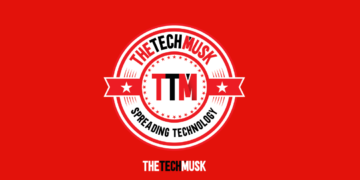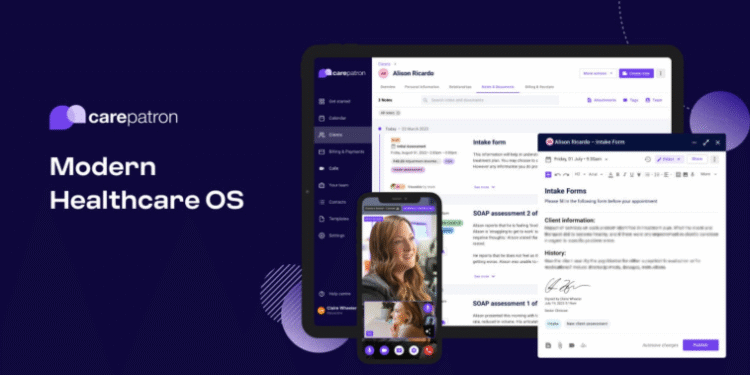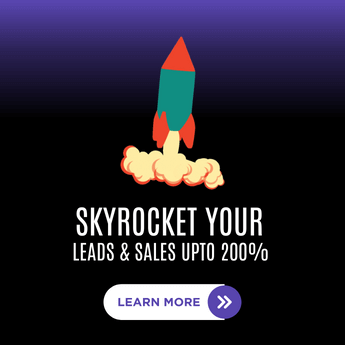Can you introduce yourself and tell us about your role in the healthcare technology sector?
I’m Jamie Frew, co-founder of Carepatron, where our goal has always been to make life easier for healthcare professionals. I’ve been working in this space for years now, and honestly, it started with a simple observation: Practitioners are overwhelmed with admin, burnt out, and using tools that just don’t work the way they need them to.
Before Carepatron, I had my own history with healthcare, and one of my biggest takeaways from how things operate was how fragmented everything was. Practitioners were wasting over three hours a day just on admin. That didn’t sit right with me. We built Carepatron as a direct response to that.
We made sure that our pricing was, and still is, intentionally accessible. Where other platforms charge between $150 and $590 over six months, our Essential Plan is just $84 for the same period. That’s because we believe great tools should be within reach, not behind a paywall.
Carepatron is now used in over 135 countries, available in more than 22 languages, and supports over 10,000 healthcare teams. It’s an all-in-one healthcare operating system that helps practitioners manage scheduling, client communication, documentation, payments, and telehealth, all in one platform. We’re also investing heavily in AI, with features like automated notes, document generation, and AI transcriptions during telehealth sessions. But our core principle remains: We don’t utilize AI to replace practitioners but to assist, support, and empower their practice. Nothing can replace true human care.
My role today is still very hands-on with the product and team. I work across design, customer feedback, and long-term strategy. I spend a lot of time listening to clinicians because they’re the ones shaping what Carepatron becomes next. We’re not just building features. We’re solving real problems.
What inspired you to pursue a career at the intersection of technology and healthcare, and how has your journey led you to your current position?
For me, it started with a deep frustration around how broken so many systems felt, especially in healthcare. I’ve always been drawn to technology because of its potential to simplify things. But what really clicked was seeing how outdated and disconnected most healthcare tools were, especially for the people on the front lines. These are professionals doing incredibly meaningful work, yet they’re forced to deal with clunky interfaces, scattered systems, and hours of manual admin every single day.
The journey to this point has been shaped entirely by listening. Listening to clinicians, listening to what frustrates them, and listening to what could make their day just a bit easier. That mindset has stayed with me from day one. I’m still in the product every day, still talking to users, and still asking how we can make Carepatron better.
Based on your experience with Carepatron, how has AI transformed the day-to-day operations of healthcare professionals, and can you share a specific example of its impact?
Across the Carepatron platform, we’ve seen this most clearly with our AI note-taking and documentation tools. A really common pain point we heard early on was that practitioners were spending hours each week writing clinical notes. It wasn’t just time-consuming. It was draining. That’s where we brought in AI to help generate and structure notes based on conversations, templates, and context. It saves a huge amount of time and reduces mental load.
When clinicians are supported and have time to care for their own mental, emotional, and physical health, they are in a much better position to show up for their patients. We talk a lot about patient outcomes, but those outcomes start with healthy, focused practitioners. AI helps by giving time back. Time that can be used to reset, reconnect, and recharge.
As I keep reiterating, the bigger picture here is that AI is not replacing practitioners. It’s giving them the freedom to focus on what really matters.
In your view, what are the most pressing challenges in implementing AI and other smart technologies in healthcare settings, and how can these be overcome?
One of the biggest challenges with implementing AI in healthcare is trust. Not just whether the technology works, but whether clinicians actually feel confident relying on it. Healthcare is personal, emotional, and often high-stakes. If AI gives the wrong output or makes the workflow more confusing, even once, that trust breaks down quickly. And rightly so.
Another major issue is integration. Most healthcare teams are already using a mix of tools, and adding another layer, especially one powered by AI, can feel like just more noise unless it fits naturally into existing systems. If it doesn’t reduce friction, it adds it.
There’s also the challenge of transparency. A lot of AI tools still operate like a black box. Practitioners don’t want magic. They want to know how a note was generated, what data it pulled from, and whether it’s clinically accurate. If we’re asking clinicians to rely on these tools, we have to be clear about how they work and where the boundaries are.
It’s our priority at Carepatron to make AI feel like a natural extension of the clinician’s own thinking. It supports, it doesn’t take over. For example, our AI scribe helps generate notes, but the practitioner always reviews and edits. That’s key. The clinician is still in control.
To overcome these challenges, I think we need to be patient but focused. Start small. Show clinicians clear wins. Saving time, reducing clicks, improving accuracy. Keep them in the loop at every stage and build transparency and feedback into the system. And above all, remember that the goal is not just to use AI. The goal is to make healthcare better for everyone involved, starting with the people delivering it.
Can you share an example of how Carepatron’s technology has directly improved patient outcomes or experiences?
While our main users are clinicians, not patients, we’ve heard countless stories about how this kind of behind-the-scenes support has helped practitioners build stronger relationships with their clients. When clinicians are better supported and less distracted by admin, they’re more present, more responsive, and more connected. Patients feel that. And that’s the kind of outcome we care most about.
What advice would you give to healthcare professionals who are hesitant about adopting new technologies in their practice?
I completely understand the hesitation. Healthcare professionals are already under pressure, and adopting new technology can feel like just one more thing to deal with. But my advice is to take a step back and start small. You don’t need to change everything at once. Focus on one area of your workflow that causes the most frustration. Maybe it’s scheduling, documentation, or billing. Look for a tool that can help make that specific task easier.
The goal with any new technology should be to reduce your workload, not add to it. If a tool is making your day harder, it’s probably not the right one. Choose something intuitive, something you can pick up and start using without needing hours of training. That’s something we’ve always prioritized at Carepatron. We hear from new users all the time who are surprised by how quickly they can get up and running. That is exactly how technology in healthcare should feel: simple and supportive.
Also, think about why you got into this work. Most clinicians didn’t choose this path to spend time on admin or chase paperwork. You got into it to care for people. The right technology gives you more time to do just that. It takes the pressure off and allows you to focus on the part of your job that really matters.
And finally, talk to your peers. Ask what’s actually working for them. A lot of the growth we’ve seen at Carepatron has come from clinicians sharing their experience with others. When you hear a colleague say that using the right system helped them feel more in control, more efficient, and more connected to their clients, it makes a real difference.
If you’re hesitant, just try one small step. Choose a tool that’s built to support you, not complicate things. The payoff in time, energy, and patient care is almost always worth it.
How does Carepatron balance the need for technological advancement with ensuring patient privacy and data security?
Balancing innovation with privacy and data security is something we take incredibly seriously at Carepatron. We’re always working to make the platform smarter and more intuitive, but never at the expense of trust. That means patient privacy and data protection are built into everything we do. One of the biggest challenges is that we support healthcare teams in over 135 countries. Each region has its own privacy laws and compliance frameworks. Whether it’s HIPAA in the US, GDPR in Europe, the Privacy Act in Australia, or local equivalents elsewhere, we’ve built Carepatron to align with those requirements from the ground up. That includes secure data encryption, access controls, audit trails, and options for clients to manage their own information when needed.
We also stay on top of regulatory changes. Our team actively monitors global policy shifts and updates the platform to reflect new standards. It’s not something we do once and forget. It’s part of the regular rhythm. Reviewing our systems, adapting our policies, and making sure we’re not just meeting today’s expectations but staying ahead of what’s coming.
When we add AI into the mix, that bar gets even higher. All of our AI features are designed to be HIPAA-compliant and transparent. Practitioners can see what was generated, edit it, and stay in full control. Nothing happens without their review or consent.
In short, we build with privacy in mind from day one. We know that no amount of smart tech matters if people don’t feel safe using it. So we earn that trust by staying compliant, staying current, and being clear about how we protect every piece of data on the platform.
Thanks for sharing your knowledge and expertise. Is there anything else you’d like to add?
You can connect with me, Jamie Frew, on LinkedIn and support our mission for accessible, affordable, and global healthcare by checking out Carepatron.























